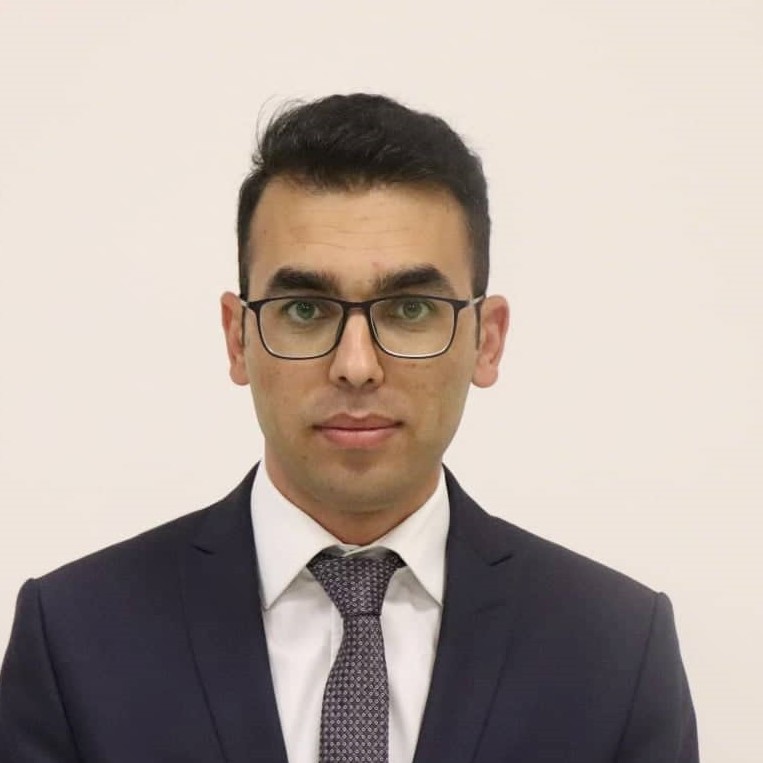 2025 / 10 / Feb
2025 / 10 / Feb
The Importance of the Return of Syrian Refugees to Their Country
The civil war in Syria, which erupted in 2011, led to one of the largest humanitarian crises in modern history. More than 11 million Syrians were displaced, including six million internally displaced persons (IDPs) and five million refugees. Turkey emerged as a major destination for those fleeing the war from neighboring Syrian countries. By December 2017, Turkey hosted 3.4 million registered Syrian refugees, in addition to a large number of unregistered ones. As of November 2024, this number decreased to 2.935 million, the lowest since 2017. Turkey has shouldered the burden of this displacement, providing temporary protection for millions.
The Importance of the Return of Syrian Refugees to Their Country
The mass migration of Syrians to Turkey significantly impacted Turkish society and economy. While the initial responses from Turkish citizens were largely sympathetic toward Syrians, the prolonged nature of the crisis led to a depletion of public goodwill. Cultural differences, perceived economic competition, and integration challenges further complicated relations between refugees and host communities. Major cities such as Istanbul, Ankara, Izmir, and Gaziantep witnessed escalating tensions due to the concentration of Syrian populations. The latest of these tensions occurred in July 2024 in the city of Kayseri, which saw attacks on shops and properties belonging to Syrians after rumors spread that a Syrian refugee had harassed a child. Following these developments, Turkish President Recep Tayyip Erdoğan stated, "The toxic rhetoric adopted by the opposition is one of the reasons for these unfortunate events," reflecting how the presence of Syrians has become one of the most significant factors with a major impact on Turkish domestic politics.
With rising unemployment and inflation in Turkey, the refugee issue became a major topic of political discourse. It can even be said that it significantly affected the results of the 2023 presidential elections (in which Erdoğan won in the second round) and the local elections (municipal), through the increased popularity of opposition parties that called for the return of Syrians to their country. The Republican People's Party (CHP) even won control of most municipalities in Turkey, including large cities like Istanbul, Ankara, Izmir, and Antalya. The opposition's anti-Syrian rhetoric played a significant role in influencing election outcomes, particularly as the economic situation worsened. It is expected that the political discourse against Syrians staying in Turkey will continue, especially after the collapse of the Ba'ath regime in Syria, as the Turkish government's justifications regarding Syria's unstable security situation and the oppression of Assad's regime no longer hold.
In the coming period, Syrian refugees present a significant opportunity for Turkey to extend its political, economic, and security influence over Syria. The large number of Syrians in Turkey, many of whom opposed the Assad regime or called for a non-repressive system, will have a significant political impact through upcoming political projects. In this context, a professor at Sultan Mehmet Zaim University says, "One of my Syrian students started by not attending classes, but later I learned that he became the Syrian Minister of Foreign Affairs." This demonstrates the potential influence Syrians in Turkey may have on Syria's future politics and highlights the depth of Turkey's soft power under the ruling Justice and Development Party (AKP).
The Fall of the Assad Regime
With the start of the deterrence operation launched by opposition Islamic groups controlling northern Syria, specifically Idlib, the Syrian military sectors collapsed with little resistance. This led Bashar al-Assad to flee Syria, and the opposition, led by Hayat Tahrir al-Sham (HTS)—designated as a terrorist organization by many countries, including the United States—took control of state institutions. The control of these groups, which have strong ties to Turkey, ushered in a new phase of Syrian-Turkish relations. This was reflected in the visit of Turkey’s intelligence chief to Damascus and Foreign Minister Hakan Fidan. There are talks about the possibility of a visit by Turkish President Erdoğan to Damascus, who had initially declared his intention to pray in the Umayyad Mosque at the beginning of the crisis. After the visit of Turkish Foreign Minister Hakan Fidan to Damascus, Turkey's chargé d'affaires in Damascus, Burhan Kuraoğlu, stated, "Erdoğan is considering visiting Damascus," and added, "I expect our relationship with Syria to resemble that which existed during the Ottoman Empire."
With the beginning of a new phase in Syrian-Turkish relations after the opposition’s control of the country, questions and preparations have emerged in Turkey regarding the possible return of Syrians to their homeland. However, significant challenges remain. Syria's infrastructure has been destroyed, and economic recovery is hindered by years of conflict, sanctions, and the loss of key revenue sources like oil. The fall of the Assad regime represents a turning point, but rebuilding a stable and inclusive Syria is crucial for the return of Syrian refugees in Turkey. Ensuring security, re-establishing a government based on the will of the people, free from extremism and imposition of wills, and promoting reconciliation will be necessary to encourage the return of refugees. Without these guarantees, many Syrians may hesitate to return due to fears of insecurity, economic hardships, or the country falling into a new spiral of conflict or resembling Afghanistan.
Syrians and Their Contributions to the Turkish Economy
Despite the challenges, Syrian refugees have made significant contributions to the Turkish economy. Since 2016, Syrians have consistently ranked at the top of the list of foreigners receiving work permits in Turkey. In 2023, 108,000 Syrians received work permits in Turkey, out of a total of 239,000 work permits issued to foreigners. Additionally, Syrians have established around 8,000 businesses in Turkey, making them the largest group of foreign entrepreneurs. These businesses create job opportunities in Turkey and are expected to play a significant role in enhancing trade between Turkey and Syria in the coming period.
However, the informal employment of hundreds of thousands of Syrians often reduces wages and creates tensions with local workers. This dynamic, combined with high youth unemployment rates in Turkey, has fueled discontent in some urban areas. Nevertheless, Syrians have shown resilience and adaptability, integrating into some sectors of the Turkish economy and contributing to local development. A large number of Syrians work in construction and agriculture, especially in seasonal farming, providing cheap labor that contributes significantly to the Turkish economy, but also creates competition for Kurdish Turkish workers, who were traditionally employed in construction.
Obstacles to Returning to Syria
Although the fall of the Assad regime sparks hope for return, many obstacles remain. The Syrian economy is in a state of ruin, with the country's foreign trade volume declining from $29 billion in 2010 to $4 billion in 2023 due to the Syrian crisis, which destroyed industry and agriculture and caused the loss of most oil fields to armed groups. Oil production in Syria has fallen from 383,000 barrels per day before the civil war to 20,000 barrels per day last year in areas under the control of the Syrian regime.
The country’s economic collapse is one of the main factors hindering the return of Syrians from abroad. The lack of adequate infrastructure for housing, healthcare, and education increases the uncertainty for Syrian citizens when deciding to return. Many Syrians, especially those born or raised in Turkey, face uncertainty about their future in a country they no longer recognize. Furthermore, social and political divisions in Syria can hinder reconciliation and inclusive governance efforts, delaying the safe return of refugees.
The philosophy upon which the new Syrian state will be built (democratic or religious) and how it will be governed will undoubtedly impact the decision of Syrians to return. It is known that the Syrian people were not under Islamic law during the Ba'athist rule, and those who settled and lived for a considerable period of time in a secular state (Turkey) will likely take a stand against the establishment of a religious-based state in the country. Therefore, if Sharia is implemented in Syria, many Syrians, especially the youth and women, will hesitate to return. After the fall of Assad's regime in Syria, there were expectations of a large return of Syrians, and the Turkish government even took measures at border crossings to handle a possible rush of returning Syrians. However, from the fall of the Syrian regime until December 24, 2024, only 25,000 citizens have returned to Syria, and the total number of returnees since 2017 has been around 763,000. This indicates that while there is a desire among Syrians to return, there is also fear of the future, particularly under the control of the extremist Hayat Tahrir al-Sham. The revenge operations carried out by armed groups in areas with high populations of Alawites, as well as harassment of Syrian Christians and non-Sunni communities, suggest that Syria will not enjoy peace and security based on citizenship. All these factors will influence the return of displaced Syrians.
Plans by the Turkish Government for the Return of Refugees
The Turkish government has emphasized the importance of facilitating the return of Syrian refugees, which includes cooperation with the emerging Syrian leadership to achieve stability and rebuild infrastructure. The plans include building housing and supporting local economies in Syria to encourage voluntary return. There are many obstacles and legal issues that will face Syrians returning to Turkey, as a large number of them lost their official Syrian documents during this period, and the information registered with the Turkish government, immigration and displaced persons department, is currently held by the Turkish authorities. The return of these individuals to Syria will require significant coordination between the new Syrian government and the Turkish government. To facilitate the return of Syrians, Turkish Interior Minister Ali Yerlikaya stated that special offices will be established at the Turkish consulates in Damascus and Aleppo to transfer and use this information in Syria.
The Role of the International Community
The international community plays a pivotal role in ensuring a successful solution to the Syrian refugee crisis. Financial and logistical support for reconstruction in Syria is crucial to creating the conditions for return. Additionally, international organizations can assist in monitoring human rights conditions and ensuring safe and voluntary return. The Turkish Red Crescent has opened a branch in Damascus and is expected to open another branch. However, Western humanitarian support will be crucial in the coming period to assist in the return of displaced Syrians by contributing to the provision of housing, education, healthcare, and other essential services.
Host countries for Syrian refugees, including Turkey, will require continued assistance to alleviate the social and economic pressures arising from prolonged displacement. Shared responsibility and global solidarity are essential for addressing this crisis comprehensively. Here, the U.S. role is more influential in the decision of Syrians to return to their country, particularly through the lifting of economic sanctions on Syria to save the country's collapsed economy. Syrian state control over all territories and oil fields, coupled with the lifting of sanctions on Syrian oil exports, will significantly contribute to the rebuilding of the country's economy. Oil once accounted for two-thirds of the country’s exports before the crisis began in 2011.
Conclusion
The Syrian crisis and its repercussions have left an indelible mark on Turkey, providing both challenges and opportunities. While Syrian refugees have contributed to the Turkish economy, their prolonged stay has impacted social cohesion and resources. The fall of the Assad regime offers a glimmer of hope, but significant obstacles must be overcome to enable the safe and voluntary return of refugees, especially those related to security, governance, and the lifting of sanctions on Syria.
Turkey will play a pivotal role in building a new Syria. National reconciliation in Syria, the establishment of a constitution, and supporting economic recovery through international grants and lifting

writer